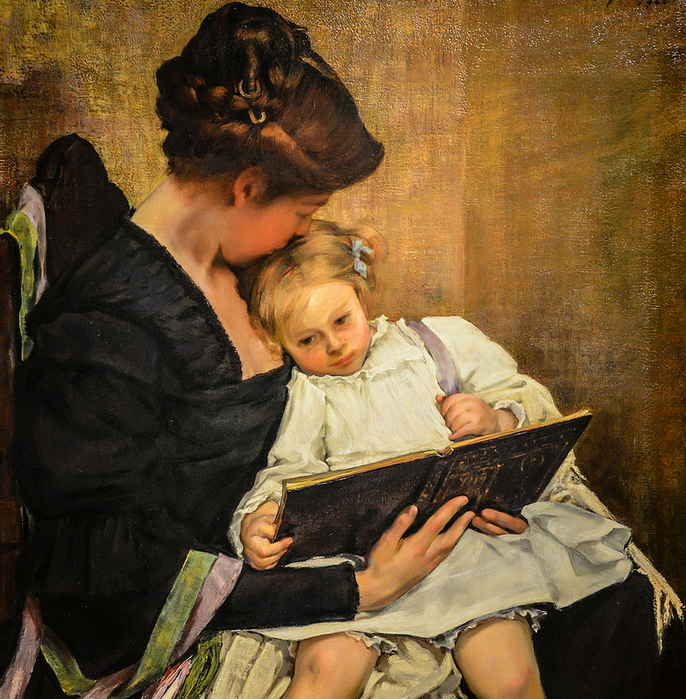A friend of mine recently took her two-year-old son out of state to a family wedding for three weeks. When they returned, her son was talking in a fluent and skilled manner.
After hearing him speak, a family member of mine noted in amazement how articulate the little boy had become.
I laughed and said, “What do you expect when he’s been in a house full of talkative adults for the last three weeks?!”
My little friend’s articulate vocabulary has him well on his way to becoming a stellar reader, for according to the National Institute for Literacy, “The more that caregivers intentionally make time for talking and sharing experiences… the more support there is for children’s language development and later reading comprehension success.”
Judging from this research, one of the best ways parents can encourage good reading habits in their toddlers is by giving them as many opportunities as possible to hear words – whether in conversation or in reading.
But what about later in life as the child gets into early grade school? Is there a way for parents to continue encouraging good reading habits in children who may have learned to handle simple texts, but just aren’t turning into avid readers?
According to Dr. Daniel Willingham the answer is yes. In his book, Raising Kids Who Read, Dr. Willingham gives 16 ways in which parents can help their children practice their reading skills in everyday life. Eight of these are listed below:
- Leave your child notes – in his lunchbox, on his bed, in the playhouse, wherever.
- Ask your child to bring in the mail and help you out by sorting it by recipient.
- Show him the cooking directions on a box of pasta (or whatever) and ask him to help you by reading them as you perform each step.
- Make writing thank-you notes a habit for your child – not just when she gets a present but when a friend takes her on a special outing or other activity.
- Sidewalk chalk (or marking in snow) is a novel way to write. Leave a note for a sibling or parent.
- Suggest that your child make a treasure hunt with written clues for a sibling or parent’s birthday.
- On a busy weekend morning, suggest to your child that she make a to-do list for all the things she has planned for that day – especially if you’re making your own list at the same time.
- Ask your child to help you with a task that entails reading, and where it’s not clear you could do it yourself (because then you’re obviously just quizzing her). For example, in the car: “What’s the speed limit around here?’ or, ‘I’m looking for Patrick Street. Help me find it, will you?”
—
Dear Readers,
Big Tech is suppressing our reach, refusing to let us advertise and squelching our ability to serve up a steady diet of truth and ideas. Help us fight back by becoming a member for just $5 a month and then join the discussion on Parler @CharlemagneInstitute and Gab @CharlemagneInstitute!
Image Credit:
William Sergeant Kendall via Plum Leaves bit.ly/1ryPA8o
















Leave a Comment
Your email address will not be published. Required fields are marked with *